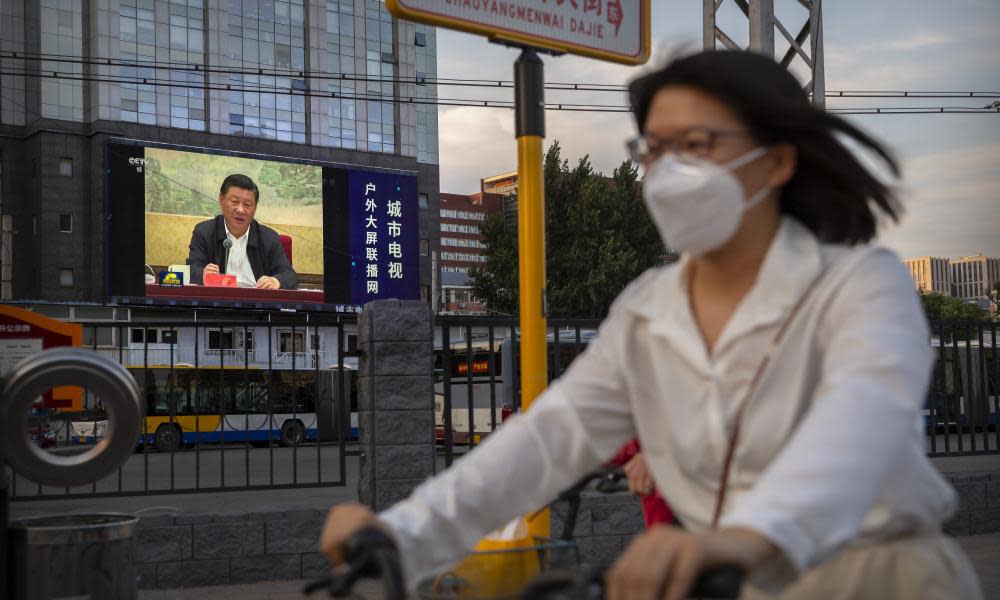Xu Zhangrun, outspoken critic of Xi Jinping, detained by police in Beijing

Chinese professor Xu Zhangrun, known for his scathing and public criticisms of China’s leader Xi Jinping, has been detained, according to friends of the legal scholar.
Two friends of Xu, speaking on the condition of anonymity to avoid reprisals, told the Guardian that he had been detained on Monday morning. According to one, around 20 police officers and 10 vehicles arrived at his home in Beijing and took Xu away.
According to a statement online, also by a friend of Xu’s, a dozen officers entered his residence, seizing his computer and other items before detaining him.
After publishing several public attacks on the Chinese leadership, Xu was placed under house arrest early this year and barred from social media with his internet cut off.
Related: ‘This may be the last piece I write’: prominent Xi critic has internet cut after house arrest
According to his friends, Xu had been confined at home since 30 June, ahead of anniversary of the founding of the anniversary of the founding of the Chinese Communist party, as well as Hong Kong’s handover to Chinese control when protests erupted in the city over a newly passed security law. Xu was released from house arrest on Saturday.
“He is the intellectual who has criticised the authorities and questioned their legitimacy most severely over the past few years ... I think he was detained because he has been very influential,” the friend said.
An officer answering the phone at a police station in Changping where Zhang may have been taken said they could not answer questions and did not know anything of his arrest.
Xu, an expert in constitutional theory and Western philosophy at Tsinghua University, offers a rare voice of dissent from a liberal intellectual camp under Xi’s increasingly repressive regime.
In 2018 his essay, Our dread now and our hopes, was one of the most direct critiques of the Chinese government under Xi and circulated widely on the internet. In February, another essay, Viral Alarm: When Fury Overcomes Fear, attacked Xi over his handling of the coronavirus pandemic. A collection of Xu’s essays was published in June.
Xu, who calls for China to implement constitutional democracy, continued to publish his essays with full knowledge that he would likely suffer retaliation. He wrote in in his February essay: “I can now all too easily predict that I will be subjected to new punishments; indeed, this may well even be the last piece I write.”
In another recent essay in June, Xu accused the ruling communist party of “fascist aesthetics” moving to stifle any independent ideas or art by demolishing an artist’s village on the outskirts of Beijing. He also accused the leadership of ignoring the needs of the people, suffering “disaster after disaster” – of flooding and unemployment following the epidemic.
“At the time of writing, the sound of destruction is still booming, the epidemic continues to spread and the south of the country is flooded. The country is suffering from internal and external difficulties and has reached into a dead end. The official media are blind, still singing praises and songs,” he wrote.
Referring to Qin Shi Huang of the Qin dynasty, known for burning books and burying scholars alive to prevent criticism, Xu wrote: “He is crazy, ruining livelihoods and trampling on intellectuals and creating a world demons … how can we wait for nothing?”

 Yahoo News
Yahoo News 